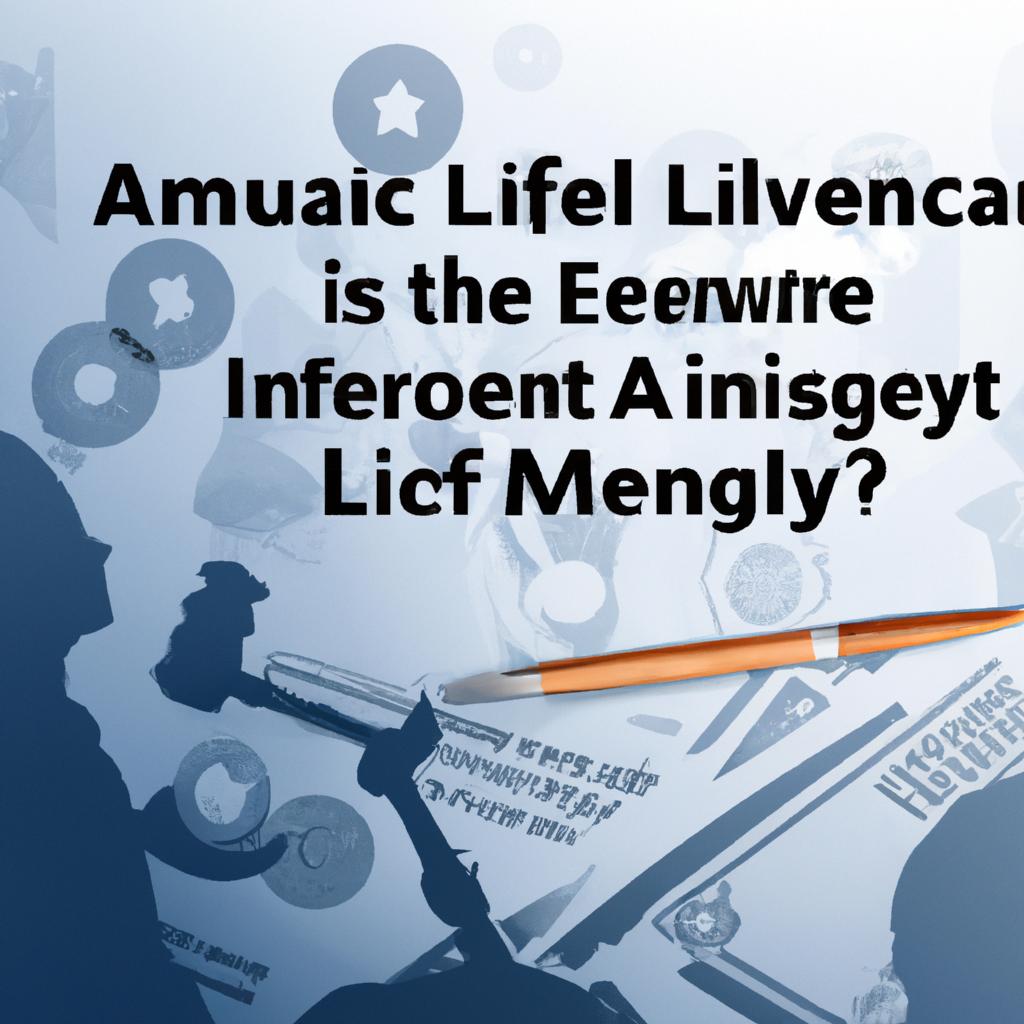Life insurance serves as a financial safety net for beneficiaries in the event of the policyholder’s demise. However, the interplay between life insurance payouts and estate planning, particularly probate, can be complex and confusing. This article aims to shed light on the intricate relationship between life insurance and probate, providing clarity on this crucial financial issue.
Decoding the Probate Process for Life Insurance
Generally, life insurance policies do not undergo the probate process. This is because the benefits from a life insurance policy are usually paid directly to the beneficiaries specified in the policy, thereby circumventing the probate process. Probate is the legal procedure through which a deceased person’s assets are allocated to their heirs, and it can be a time-consuming and costly process. However, there are certain circumstances where life insurance benefits may become part of the probate estate.
If the beneficiary specified in the policy is deceased or if no beneficiary is specified, the life insurance benefits may need to undergo probate. Furthermore, if the deceased person’s estate is named as the beneficiary, the benefits may also become part of the probate estate. In these instances, the probate process will need to be adhered to in order to distribute the life insurance benefits to the appropriate heirs.
It’s crucial to regularly review your life insurance policy and ensure that the beneficiaries are current to avoid any potential complications that may arise during the probate process. By maintaining up-to-date beneficiaries and ensuring that they are correctly designated, you can help ensure that your loved ones receive the financial support they need without unnecessary delays or complications.
Debunking Common Myths about Life Insurance and Probate
Life insurance is often misunderstood in relation to probate. A common misconception is that life insurance automatically goes into probate upon the insured individual’s death, but this is not the case. In fact, life insurance policies are specifically designed to bypass probate and go directly to the named beneficiary.
Another widespread myth is that the benefits of the policy will be subject to estate taxes. However, life insurance benefits are typically not included in the insured person’s taxable estate, meaning they are not subject to estate taxes. This can be a significant relief for beneficiaries who may already be dealing with the emotional and financial burden of losing a loved one.
Yet another misconception is that life insurance payouts are subject to creditor claims. In reality, life insurance benefits are shielded from creditors and cannot be used to pay off any debts owed by the insured individual. This provides peace of mind to beneficiaries, knowing that they will receive the full benefit amount without worrying about creditors coming after it.
Tactics to Prevent Life Insurance from Going into Probate
There are several tactics you can employ to ensure that your life insurance policy does not end up in probate after your death. Taking the necessary steps now can save your loved ones unnecessary stress and delays in receiving the benefits they deserve.
One effective strategy is to designate a specific beneficiary for your life insurance policy. By naming a beneficiary, you are directing the insurance company on who should receive the benefits of your policy. This bypasses the probate process entirely, ensuring that your loved ones receive the funds quickly and efficiently.
Another strategy is to regularly review and update your policy documents. Life changes such as marriage, divorce, or the birth of children can impact who you want to receive your life insurance benefits. By keeping your policy up to date, you can ensure that your wishes are carried out as intended. Consider creating a trust and naming it as the beneficiary of your life insurance policy. This can provide added protection against probate and offer additional benefits such as privacy and control over how the funds are distributed.
In summary, taking proactive steps such as naming a beneficiary, regularly reviewing your policy, and utilizing trusts can help prevent your life insurance policy from going into probate. By planning ahead and making informed decisions, you can provide peace of mind for yourself and your loved ones.
Seeking Expert Advice for Effective Estate Planning
Life insurance policies are a vital part of estate planning, as they provide financial security for your loved ones after your death. One common question that arises is whether life insurance benefits go into probate. The good news is that life insurance benefits typically do not go through probate, as long as you have properly designated beneficiaries on your policy. This means that your loved ones can receive the death benefit quickly and without the delay and expense of the probate process.
When you purchase a life insurance policy, you have the option to name one or more beneficiaries who will receive the benefits upon your death. It is important to keep these beneficiary designations up to date, especially after major life events such as marriage, divorce, or the birth of a child. By doing so, you can ensure that your loved ones are taken care of and that the life insurance benefits bypass probate and go directly to the designated beneficiaries.
In summary, life insurance benefits typically do not go into probate if you have named beneficiaries on your policy. By doing so, you can ensure that your assets, including life insurance policies, are distributed according to your wishes and avoid the probate process. Remember to review and update your beneficiary designations regularly to ensure that your loved ones are provided for after you are gone.
The Path Ahead
In conclusion, navigating the complexities of probate can be a challenging task, especially when it comes to dealing with life insurance policies. Understanding how life insurance is treated in probate can help ensure a smooth transition of assets to your beneficiaries. Remember to review your policy and designate your beneficiaries carefully to make the process easier for your loved ones. With proper planning, you can ensure that your life insurance stays out of probate and provides the financial security you intend for your family. Thank you for reading!

Unraveling the Mystery: Does Life Insurance Fall Under Probate?
When it comes to estate planning, understanding the intricacies of probate can be crucial. Probate is the legal process through which a deceased person’s assets are distributed to their heirs and beneficiaries according to their will or state laws. One common question that arises in estate planning is whether life insurance falls under probate. Let’s delve into this topic and unravel the mystery surrounding it.
Does Life Insurance Fall Under Probate?
Life insurance policies are typically not subject to probate. When you purchase a life insurance policy, you designate one or more beneficiaries who will receive the death benefit upon your passing. The proceeds from a life insurance policy are paid directly to the named beneficiaries and do not pass through the probate process.
- Life insurance policies are considered non-probate assets.
- Beneficiaries of life insurance policies bypass probate and receive the death benefit directly.
Benefits of Avoiding Probate with Life Insurance
By designating beneficiaries on your life insurance policy, you can avoid the probate process altogether. This has several benefits, including:
- Immediate access to funds: Beneficiaries receive the death benefit quickly, without the delays associated with probate.
- Privacy: Probate is a public process, while life insurance proceeds are distributed privately to beneficiaries.
- Cost savings: Probate can be expensive, with fees and court costs eating into the estate’s assets. Life insurance proceeds are not subject to these costs.
Practical Tips for Estate Planning with Life Insurance
When incorporating life insurance into your estate plan, consider the following tips:
- Review your beneficiaries regularly to ensure they reflect your current wishes.
- Consider naming contingent beneficiaries in case your primary beneficiaries predecease you.
- Consult with an estate planning attorney to ensure your life insurance aligns with your overall estate plan.
Case Study: How Life Insurance Avoided Probate
Consider the case of Sarah, who had a sizable life insurance policy that named her two children as beneficiaries. When Sarah passed away, her children received the death benefit directly, bypassing the probate process. This allowed them quick access to the funds and preserved the privacy of the transaction.
First-Hand Experience: Why I Chose Life Insurance to Avoid Probate
As an estate planner, I have seen firsthand the benefits of using life insurance to avoid probate. Not only does it streamline the distribution of assets, but it also provides peace of mind to clients knowing that their loved ones will receive the financial support they need without delay.
| Benefit | Explanation |
|---|---|
| Immediate access to funds | Beneficiaries receive the death benefit quickly, avoiding probate delays. |
| Cost savings | Life insurance proceeds are not subject to probate fees and court costs. |
In conclusion, life insurance typically does not fall under probate, making it a valuable tool in estate planning. By designating beneficiaries on your life insurance policy, you can avoid the probate process, providing your loved ones with quick access to funds and preserving the privacy of the transaction.


